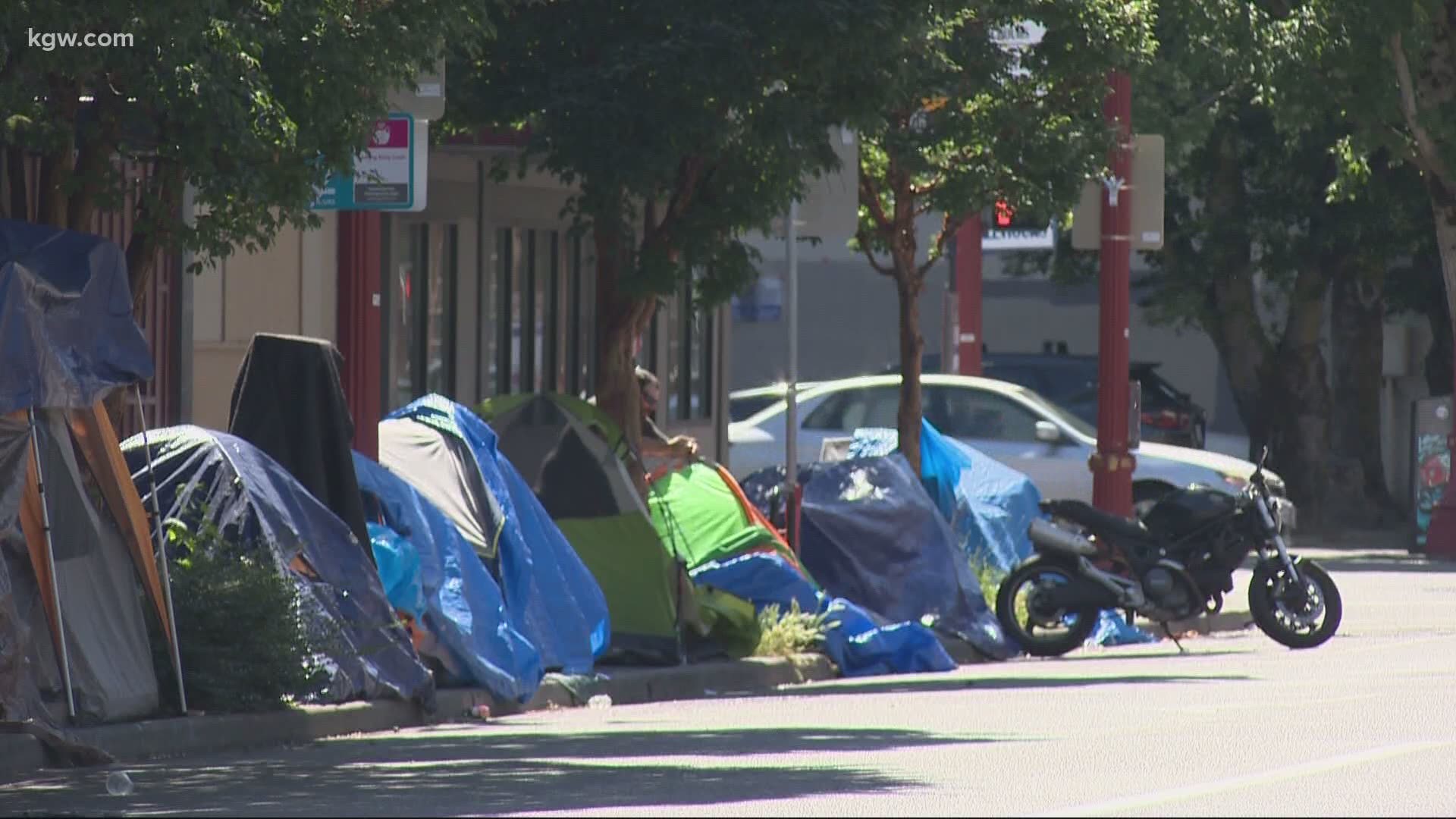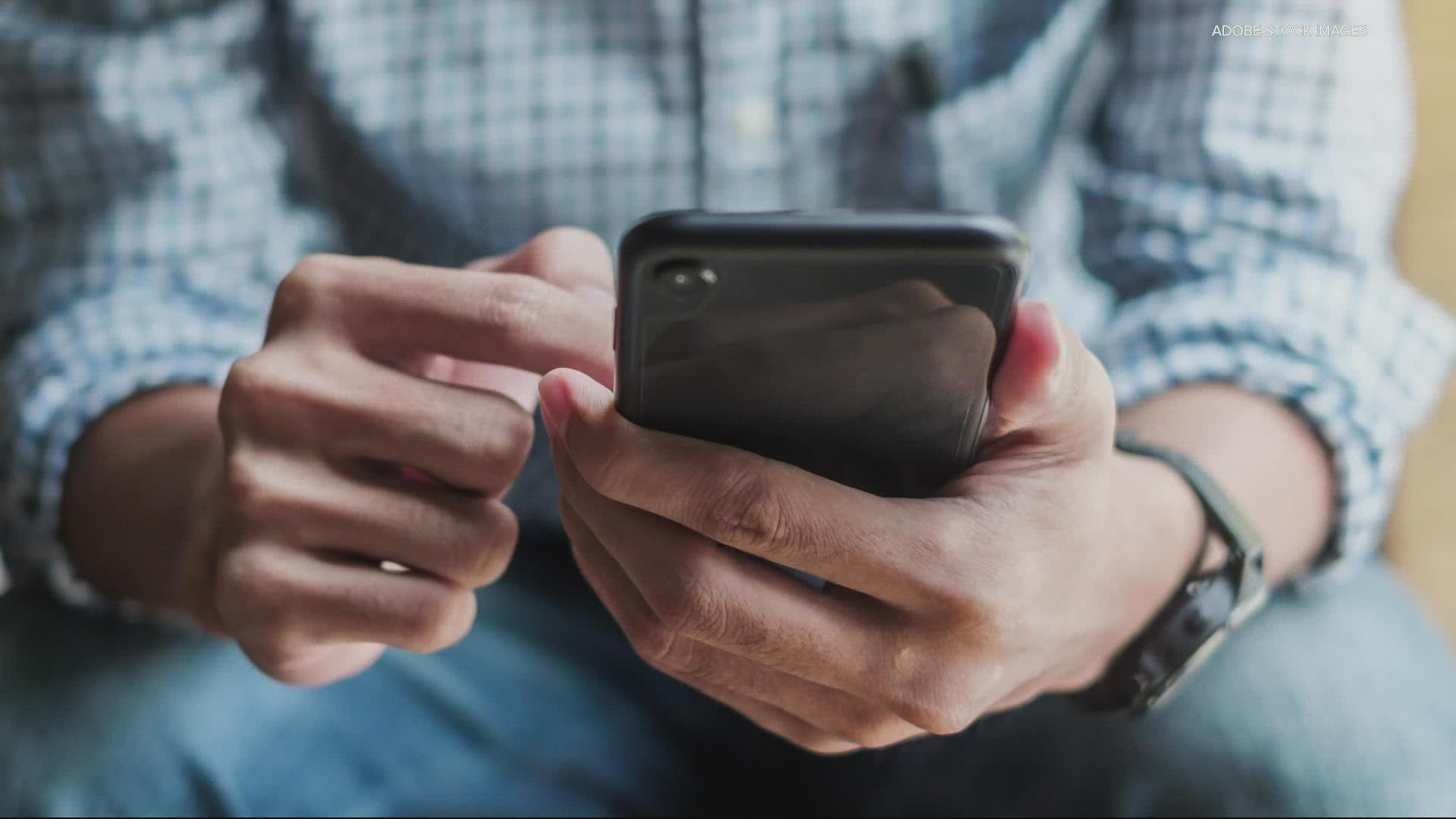If 911 isn't the best choice, who do you call when you see someone in distress in Portland?
Portland Street Response is still limited to one neighborhood. Amid a mounting housing crisis and historic stress brought on by the pandemic, what resources exist?

More than a year after Portland city commissioners voted to fund a long-awaited program aimed at providing a non-police response to mental health calls, and more than six months after that program launched as a small pilot project limited to one neighborhood, the vast majority of the city’s first response model remains largely unchanged.
Portland Street Response, which sends a crisis counselor and paramedic to calls involving addiction or mental health concerns, still only operates in Southeast Portland’s Lents neighborhood. In a surprising twist this summer, city commissioners voted 3-2 against guaranteeing the boost in funding needed to expand it citywide next spring.
In the meantime, Portland’s housing crisis appears worse than ever, with an unprecedented number of people camping on the city’s streets. Plus, experts say stress brought on by the COVID-19 pandemic, historically severe wildfires and other traumatic events of the last year and a half are causing rates of depression and anxiety to spike.
So, whether on the streets or in your own home, when you see someone who appears to be experiencing a mental health crisis in Portland, who do you call? What resources, besides 911 and police, exist? And when you do call, what should you expect?
KGW set out to find simple answers.
Here's who you can call
While the push to launch Portland Street Response, or PSR, has produced years worth of headlines, directors of a long-standing service in Multnomah County have quietly watched with somewhat mixed emotions. Overwhelmingly, they’re glad to see more conversations about expanding mental health services. They’re also slightly confused. They’ve been providing a county-wide model, similar to PSR’s, for a long time.
"Our call center has been here for decades," said Julie Dodge, the county’s interim director of behavioral health. "And if I was going to say anything to folks, I would say pull out your phones right now, and create a new contact, and plug in the number."
Dodge was talking about Multnomah County’s 24/7 mental health crisis line: 503-988-4888
As the name suggests, the service is staffed around the clock. The crisis center has 44 operators, two supervisors and one manager field an average of 70,000 calls per year.
"There will always be someone there to answer the phone," Dodge said in an interview Monday. "Whether it’s a family member who you’re concerned about, might be having some mental health concerns, is depressed, maybe you haven’t heard from them … a person with a disability you’re concerned about, as well as people that you see outside, who you’re not sure how to respond to them or how to approach them."
It’s that last category that people are often nervous to call in about, Dodge said. They often don’t know if it’s appropriate or useful to request help for a stranger, especially one they don’t feel comfortable approaching themselves.
It’s absolutely appropriate, Dodge said. She added it’s helpful for people to know the variety of services available in responding to such calls.
"The call center can activate a whole host of resources from adult disability and veteran's services, adult protective services… we can call out a wellness check," Dodge said. "It’s okay if you don’t have all the fancy words to explain [the situation]. We’ll talk you through it. That’s our goal, to talk you through it and help find the best resources."
Here's who shows up
One of the main service providers dispatched by Multnomah County’s crisis line is Cascadia Behavioral Healthcare’s Project Respond. It’s operated as a 24/7 mobile crisis response team for close to 20 years, with calls referred by both the county’s crisis line and Portland police.
"We’re the people that can go out and kind of be those experts that say 'What might be going on for that person?'" said Jackie Thomson, co-program manager for Project Respond.
Like the crisis line that dispatches it, Project Respond is available around the clock, though staffing levels ebb and flow with average call rates. At peak hours, in the afternoon and early evening, eight teams are on staff, ready to respond to non-violent calls involving mental health or welfare concerns. Each team is made up of two master’s degree-level mental health clinicians, and the help they offer can vary widely: from taking someone to a hospital to directing them to a foodbank.
"What we’re trying to do is look for the immediate, within the next 12 hours, can someone take care of themselves in like an adequate way and can someone make sure they don’t hurt themselves or anybody else?" Thomson said.
She admitted a lot of people don’t know Project Respond exists. For years, that’s been by design. The teams drive to calls in unmarked, white sedans and SUVs. They wear street clothes and carry mismatched, logo-less backpacks. In the past, their ambiguous look was a conscious choice, aimed at protecting the people they serve from the stigma associated with mental health crises.
"We still have this unfortunate worry that, when we show up, somebody’s going to be worried that their neighbors are going to find out that mental health response came," Thomson said. "But the other side of that is a community saying 'We want more mental health [services].'"
It’s that growing public push, largely tied to the PSR debate, that’s prompted Project Respond to be more vocal about who they are and what they do. At the same, their workload is sky-rocketing. In 2019, Project Respond teams responded to and made contact with subjects at the center of 3,091 calls. In 2020, that number rose to 3,203. So far this year, they’ve responded to 2,926 calls, putting the program on track to easily set a new record high by the end of 2021.
At the same time, Thomson said, there’s been a marked increase in "concerned citizen calls," the term they apply to good Samaritans calling in, worried about a stranger on the street who appears to be in distress. Hard data on that ratio was harder to come by, but Thomson estimated those currently make up about half their call load.
In a city six years into an official housing emergency, results from "concerned citizen" calls can, sometimes, be frustratingly stagnant. Thomson said she’s left people with tents and sleeping bags before. She’s also handed them vouchers for a local shelter. Often, staff from Project Respond will ping Cascadia’s Street Outreach Team, a separate, non-emergency program that keeps in touch with people living on Portland’s streets and works on longer-term plans to get them into shelters and housing.
"Just an extra, little 'Hello, you are important to us, and we care. Would you want to connect with us as resources just one more time?' might be a positive influence," she said. "We try to do that."
Here's when to call 911
Both Dodge and Thomson understand the push for more alternative programs like Project Respond and Portland Street Response is largely tied to recent concerns and fears over police violence. For that reason, they both acknowledged some people might be hesitant, in situations involving mental health, to call 911.
Still, at times, both said 911 is the best choice. That’s especially true if the caller has seen the person carrying a weapon or has any reason to fear for their or others’ safety.
"If someone is imminently in distress, if they’re running out into traffic or they’re accosting people, we would suggest calling 911," Dodge said. "Law enforcement, in spite of all the things that we're hearing... their goal is not to harm people. They don't want to have behavioral health interventions go wrong any more than we do."
Another key factor to consider, Dodge said, is time. After decades on the streets, resources like Project Respond are reliable, but they’re not always as fast as callers would like.
"They’re not going to be there in five minutes," she said. "It could take up to an hour."
Thomson agreed, adding "[Police] have lights and sirens. We do not. Absolutely, I might be in traffic. Those things are just the reality of it that I wish wasn’t there. I wish we could teleport.”
She also pointed out, Project Respond has worked hand in hand with police for years. While 911 operators do not directly dispatch their teams, first responders, like police officers and firefighters, can page them to a scene.
KGW also reached out to Portland’s Bureau of Emergency Communications, which houses 911 operations. BOEC’s public information officer Dan Douthit said via email, operators will, to a degree, take into account a caller’s nerves about police being dispatched to a call.
"But generally if someone is concerned about the welfare and/or believes someone may be in a mental health crisis, 911 is the number they should call," Douthit said. "We can dispatch appropriate resources, including Portland Street Response, medical assistance, and police, if necessary."
When asked for the best resource for handling non-violent mental health calls, multiple city and county officials pointed KGW to Portland Street Response, despite the fact that its operations are still limited to one Portland neighborhood.
In response, PSR communications manager Caryn Brooks wrote:
When asked for referrals for low-acuity mental health calls outside of PSR’s boundary and response hours, we recommend that people call the Multnomah County Mental Health Crisis Line at 503-988-4888, which offers 24/7 service throughout the county. We have also referred people who have called with concern about the medical welfare of a houseless individual to Portland Street Medicine, which has a team of field doctors who specifically provide medical care and outreach to the homeless. Their services are requested by calling: 503-501-1231


